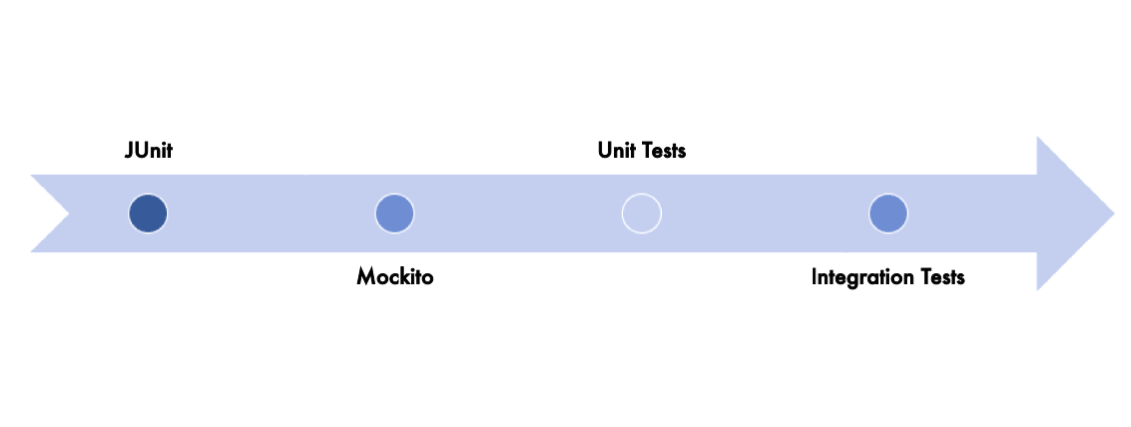Mocking is an important concept that is made use of, when writing unit tests. In this article, we explore what mocking is all about, and explore some of the popular Java mocking frameworks in use.
You will learn
- What is mocking?
- Why is mocking important?
- How can you use Mockito framework to mock classes in Java?
- What are things Mockito framework good at?
- What are features of PowerMock framework?
This is third article in a series of 4 articles on Automation Testing in Microservices
- 1 - Automation Testing in Microservices - Five Types Of Automation tests
- 2 - Best Java Unit Testing Frameworks - With Examples of JUnit, Mockito and More…
- 3 - Programming Basics - Unit Testing - What Is Mocking?
- 4 - Unit Testing Best Practices - with Java and Junit Examples
Why Do We Need Mocking?
Have a look at the following Java code:
public class SomeBusinessImpl {
private DataService dataService;
//Constructor - public SomeBusinessImpl(DataService dataService)
int findTheGreatestFromAllData() {
int[] data = dataService.retrieveAllData();
int greatest = Integer.MIN_VALUE;
for (int value : data) {
if (value > greatest) {
greatest = value;
}
}
return greatest;
}
}
SomeBusinessImpl gets the data it needs, through a DataService, which is an external interface. findTheGreatestFromAllTheData() represents a certain business logic applied to this data.
Let’s say we want to write a unit test for SomeBusinessImpl. The basic approach is to let the code run as is, connect to the database and write test based on the data in the database.
Let’s say the data in the database has been modified by another developer. The unit test would start failing even though the code is still right.
The unit test for SomeBusinessImpl might because it has an external dependency, which is never stable. How do we write a test for SomeBusinessImpl which does not have such an external dependency?
Enter Mocking
One way out is to create a mock for DataService:
@RunWith(MockitoJUnitRunner.class)
public class SomeBusinessMockAnnotationsTest {
@Mock
DataService dataServiceMock;
@InjectMocks
SomeBusinessImpl businessImpl;
@Test
public void testFindTheGreatestFromAllData() {
when(dataServiceMock.retrieveAllData())
.thenReturn(new int[] { 24, 15, 3 });
assertEquals(24, businessImpl.findTheGreatestFromAllData());
}
You create a mock with the DataService class, and then do what you need to with that mock.
Our mock here says: “When retrieveAllData() is called, then return the specific data new int[] { 24, 15, 3 }”. We know that if the input data is {24, 15, 3}, the value expected to be returned is 24. We write the test using this.
This makes sure that the data which is provided to SomeBusinessImpl is within the boundary of the unit test.
The code that we see above uses a popular mocking framework called Mockito. You would see that the code written is very readable, almost like plain English. Using mocks, you can mock away entire classes. Mocking also leads to stable unit tests.
Exploring Mocking Frameworks
Using Mockito With Good Design
When you have well defined classes and interfaces, unit testing with Mockito is a breeze. Mockito also provides useful annotations such as @Mock and @InjectMocks.
@RunWith(MockitoJUnitRunner.class)
public class SomeBusinessMockAnnotationsTest {
@Mock
DataService dataServiceMock;
@InjectMocks
SomeBusinessImpl businessImpl;
@Test
public void testFindTheGreatestFromAllData() {
when(dataServiceMock.retrieveAllData())
.thenReturn(new int[] { 24, 15, 3 });
assertEquals(24, businessImpl.findTheGreatestFromAllData());
}
Using PowerMock With Poor Design
Sometimes however, your code might be designed very poorly. You could be making heavy use of static methods, and could also be using private methods. In addition, you might need to mock a constructor. In such cases, you need to use PowerMock along with Mockito.
Do check out our video on this:
Summary
Mocking is a technique of unit testing a class, where we mock an external dependency in order to test our classes and methods. When unit tests are written well with mocks, they would not have any external dependencies and will not fail when external stuff changes. We looked at the Mockito framework. We also looked at the option of PowerMock for testing badly designed code.








